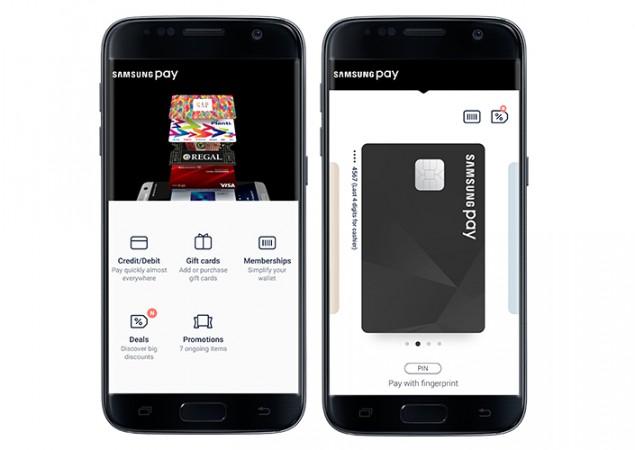
Samsung is all set to bring its mobile payments solution, Samsung Pay, to India, sensing Narendra Modi government's cashless economy initiative and its prospect. It started testing Samsung Pay in December last year and is reportedly planning to launch it in the first half of 2017, which means it will arrive in the next few months.
The Modi government's controversial demonetisation scheme, which was introduced in November last year, caused lots of hardship to the public, but certainly boosted the PM's dream of a cashless economy as people were forced to opt for digital wallets. Mobile payment solutions like Paytm, MobiKwik and FreeCharge reportedly witnessed a steep growth after Rs 500 and Rs 1,000 currency notes were demonetised, and Samsung seems to be planning to cash in on it.
[READ: After Galaxy S7 series, Galaxy Note 5 gets Samsung Pay feature in India]
Samsung Pay, which is already working in the US, Australia, Brazil, Canada, South Korea, Spain, China, Russia and Singapore, is expanding to a few countries, including India, UK, Malaysia, Russia and Thailand in the next few months. It is also reportedly partnering with American Express for its India venture and planning to join hands with Visa and MasterCard too.
But the big question is whether Samsung Pay will be able to beat domestic companies.
Samsung's mobile payments solution is compatible with only high-end Samsung smartphones, but India being a price-sensitive economy is more known for sales of budget and mid-range smartphones. This may limit Samsung Pay's prospect. This means the payments solution should come to at least mid-range devices.
Another limitation that Samsung Pay will face is lack of NFC support in most point-of-sale devices in India. This will not allow some features of Samsung Pay to function.









!['Had denied Housefull franchise as they wanted me to wear a bikini': Tia Bajpai on turning down bold scripts [Exclusive]](https://data1.ibtimes.co.in/en/full/806605/had-denied-housefull-franchise-they-wanted-me-wear-bikini-tia-bajpai-turning-down-bold.png?w=220&h=138)



